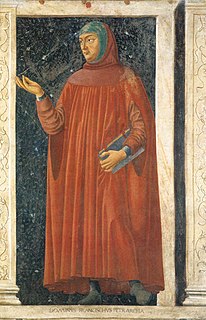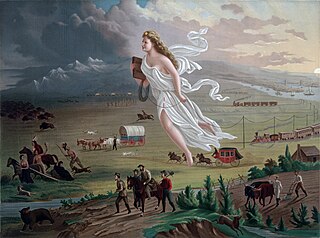 W
WIn philosophy, becoming is the possibility of change in a thing that has being, that exists.
 W
WThe "Dark Ages" is a historical periodization traditionally referring to the Early Middle Ages or Middle Ages, that asserts that a demographic, cultural, and economic deterioration occurred in Western Europe following the decline of the Roman Empire.
 W
WThe great man theory is a 19th-century idea according to which history can be largely explained by the impact of great men, or heroes; highly influential and unique individuals who, due to their natural attributes, such as superior intellect, heroic courage, extraordinary leadership abilities or divine inspiration, have a decisive historical effect. The theory is primarily attributed to the Scottish philosopher and essayist Thomas Carlyle who gave a series of lectures on heroism in 1840, later published as On Heroes, Hero-Worship, and The Heroic in History, in which he states:"Universal History, the history of what man has accomplished in this world, is at bottom the History of the Great Men who have worked here. They were the leaders of men, these great ones; the modellers, patterns, and in a wide sense creators, of whatsoever the general mass of men contrived to do or to attain; all things that we see standing accomplished in the world are properly the outer material result, the practical realization and embodiment, of Thoughts that dwelt in the Great Men sent into the world: the soul of the whole world's history, it may justly be considered, were the history of these."
 W
WHistoriography is the study of the methods of historians in developing history as an academic discipline, and by extension is any body of historical work on a particular subject. The historiography of a specific topic covers how historians have studied that topic using particular sources, techniques, and theoretical approaches. Scholars discuss historiography by topic—such as the historiography of the United Kingdom, that of WWII, the British Empire, early Islam, and China—and different approaches and genres, such as political history and social history. Beginning in the nineteenth century, with the development of academic history, there developed a body of historiographic literature. The extent to which historians are influenced by their own groups and loyalties—such as to their nation state—remains a debated question.
 W
WJournal of the Philosophy of History (JPH) is a peer-reviewed academic philosophy journal focusing on the philosophy of history and historical theory published three times a year, by Brill Publishers. Journal of the Philosophy of History is edited and institutionally anchored at the Centre for Philosophical Studies of History of the University of Oulu, Finland. It is one of a few journals with an explicit focus on philosophical issues pertaining to history and historiography. The journal contains original research articles, book reviews, and extended review essays.
 W
WPerception is the organization, identification, and interpretation of sensory information in order to represent and understand the presented information or environment.
 W
WProgress is the movement towards a refined, improved, or otherwise desired state. In the context of progressivism, it refers to the proposition that advancements in technology, science, and social organization have resulted, and by extension will continue to result, in an improved human condition; the latter may happen as a result of direct human action, as in social enterprise or through activism, or as a natural part of sociocultural evolution.
 W
WThe Years of Rice and Salt is an alternate history novel by American science fiction author Kim Stanley Robinson, published in 2002. The novel explores how world history might have been different if the Black Death plague had killed 99 percent of Europe's population, instead of a third as it did in reality. Divided into ten parts, the story spans hundreds of years, from the army of the Muslim conqueror Timur to the 21st century, with Europe being re-populated by Muslim pioneers, the indigenous peoples of the Americas forming a league to resist Chinese and Muslim invaders, and a 67-year-long world war being fought primarily between Muslim states and the Chinese and their allies. While the ten parts take place in different times and places, they are connected by a group of characters that are reincarnated into each time but are identified to the reader by the first letter of their name being consistent in each life.